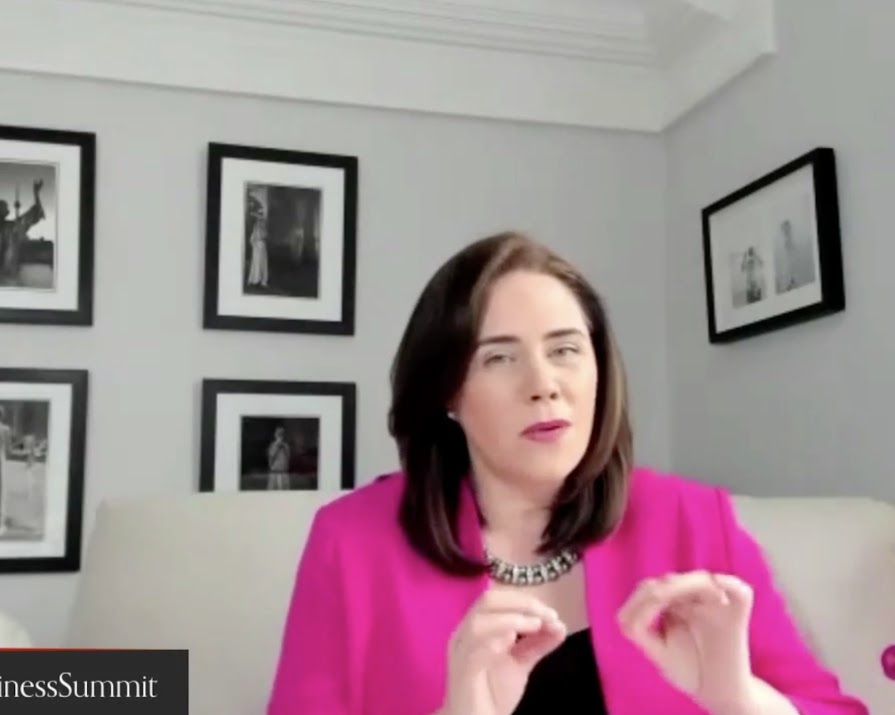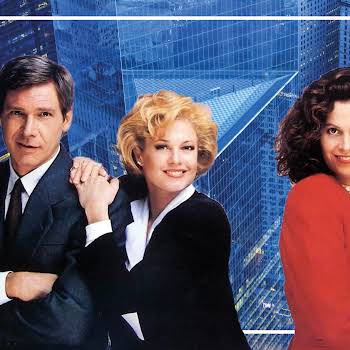
By Lucy White
20th Nov 2020
20th Nov 2020
You came, you saw, you listened. Here’s our summary of key takeaways from this year’s Business Summit powered by PwC, whose theme was ‘The Shape of Things to Come’.
1 Listen to your inner poet
The summit’s MC, economist and author David McWilliams, set the tone beautifully with an opening address that quoted Yeat’s poem The Second Coming:
Turning and turning in the widening gyre
The falcon cannot hear the falconer;
Things fall apart; the centre cannot hold;
Mere anarchy is loosed upon the world
It was written during the Spanish flu pandemic – and right after WWI – and according to McWilliams, best demonstrates how thinking unconventionally is key to rebuilding economies (and ourselves) after a crisis.
“Why did the poet and not the economist get it right? Why did the poet see it more clearly?” asked McWilliams. “The person in the creative sphere gives themselves the permission to think unconventionally during a crisis or at a tipping point. Management and economists do not. Let’s all think a little bit more like poets and a little bit less like economists.”
He later bookended the event by reminding us that the troubled 1910s were followed by “the decade that changed the world,” with its advent of electricity, the motor car and radio. With a bit of imagination, we can all apply the innovative spirit of the Roaring Twenties to the 2020s, believes McWilliams.
2 Vulnerability is the new strong
The resounding, unanimous message from this year’s event is that empathy, compassion, kindness, candour and emotional intelligence make better leaders and therefore better performing (and happier) employees.
Despite what the likes of Donald Trump or Priti Patel would have you believe, bullish behaviour is counterproductive. Instead, ditch the stiff upper lip, show your vulnerable side and glean greater respect.
“Ego is a terrible disease,” said Vodafone Ireland CEO, Anne O’Leary in her keynote talk. Better to demonstrate vulnerability from the top down while replacing traditional corporate and patriarchal hierarchies with “an equitable culture and environment where men and women reach their full potential.”

3 Embrace change
This year proved that office-based businesses can not just function, but potentially thrive online. Again, this year’s Business Summit speakers were unanimous that the pandemic accelerated remote, and flexible, working at unprecedented speed.
This is not what the more micro-managing leaders among us would have us believe, as if productivity is only measured in physical presence. But the pandemic proved that agility, flexibility and adaptability are true game-changers, and that the 9-to-5 office model has had its day.
Each and every speaker advocated looking at practical ways to turn crises into opportunities. In the case of John Brennan, co-owner of Park Hotel Kenmare and owner of Dromquinna, it has meant introducing two-night minimum stays, replacing cups of tea and coffee in the lounge (which takes a disproportionate amount of effort behind the scenes) with afternoon tea slots and maintaining two-metre distancing between tables, simply because they enhance the guest experience, he said.
The hotel’s precooked Boathouse dinners – also available in their local SuperValu – will also be a permanent fixture. “The pandemic gave us new revenue streams we’d never have thought of before,” says Brennan.
Similarly, jeweller Chupi’s virtual consultations have been a resounding success worth keeping (engagement ring sales have tripled during the crisis), while Declan Ronayne, CEO of Woodie’s DIY, suggested that its Click & Collect services will outlive covid.
4 Pay it forward
“Companies need to give back – invest their time and treasures into philanthropic partnerships,” said Caitriona Fottrell, president and CEO of The Ireland Funds. “Do something meaningful outside your own space.”
Consumers have never been more keen to align themselves with ethical brands, which will only increase as more societal fault lines are revealed by the covid response. In the same panel discussion as Fottrell, co-founder and CEO of FoodCloud, Iseult Ward said she hoped that more companies will take corporate social (and environmental) responsibility through “integrated, multi-year partnerships that are not only about donations but volunteering and skill-sharing.”
Indeed, it’s vital for both our economy and our humanity for companies, large and small, to support vulnerable communities and ecosystems, so no one gets left behind.
5 Everyone matters
Margot Slattery, global chief diversity and inclusion officer of the Sodexo Group, urged companies to address lack of representation, be it BAME, LGBTQ or people from lower socio-economic backgrounds. “Let them find their voice and find their way,” she said, adding that “active listening” is crucial, as is management being cognisant of staff who don’t speak up in meetings. Is it lack of confidence (and if so, why)? Lack of support (and if so, what can I do to help)? Zoom fatigue (do we really need this many meetings and this many attendees)?
If there’s an introvert on the team – which is an asset, since they’re excellent listeners and grafters – leaders should regularly reach out to them with one-to-one agenda-free water cooler conversation “so that when we come together as a group, they can feel safe to say something, that they’re in safe space.”

6 Know your audience
“Communication is like an art. People are expected to do it without actually learning it. When words follow a sequence and put into an order that we can actually connect with, it’s beautiful,” so said Natasha Fennell, director and co-founder of Stillwater Communications.
Leaders need to ditch the jargon and be crystal-clear on what they’re trying to convey. Also, understand your audience from the outset – know what kind of tone and language they’ll best respond to, to achieve optimum results.
7 Invest in kit
A practical one this, thanks to Presenter Mentor, Rowan Manahan, who talked on how to make a good impression online.
Not everyone can afford to splash out on fancy tech at this economically uncertain time, however if a big part of your role this year has involved giving virtual presentations and meetings, you’ll need to up your game. As any even third-rate influencer will tell you, having the right equipment is an investment that will pay off: ring lights, a good quality microphone and in-earphones.
Because of remote working’s ubiquity, pricing has never been more competitive, while a kit’s collective footprint is pretty small when clamped to a desk/breakfast bar/bathroom sink (delete as appropriate. We wouldn’t encourage the last one). Better still, get your company to pay for it, if it’s a key component of your job. Home working is going nowhere fast.
8 Behind every great leader is a great team
“Leadership can come from anywhere in the organisation,” said Clare McGee, head of education and innovation policy at Ibec, inviting bosses to learn from their own staff than presume to know all the answers themselves.
In the same panel discussion, entitled “The New Working Landscape”, Ciara Fallon, PwC’s people and organisation consulting director, championed “reverse mentoring”; leaders “tapping into the capacity and ability of the workforce entering their organisations, which is generally more digitally savvy.” “Find the person that’s better than you,” agreed Chupi, in her group session.
And when you have these vanguards? Retain them, look after them. Be the company that people want to work for because it treats its staff well. “Whatever my staff wanted, they got,” said Declan Ronayne, CEO of Woodie’s DIY, of helping his teams feel safe, sound and heard during his stores reopening, whether in terms of physical PPE or psychological reassurance.
Across this year’s summit, three small but important words emerged: “How are you?” All leaders and line managers should be asking this of staff – and moreover, actively listening to their responses, to foster trust.

9 Consider the bigger picture
Crisis management must be approached with a long-term lens than fighting fires as you go along. “You should actually always run a business lean and be prepared for survival,” said Mary McKenna, MD of Tour America, which has faced unprecedented challenges due to international travel restrictions.
While many Business Summit speakers admitted their 2020/21 business plan was binned back in spring, they all agreed that long-term objectives provide purpose and intent. “For instance, this means thinking about how we, as retailers, address Amazon in the future,” said Ronayne.
Absolutely devise a five-year plan, albeit with the expectation of adapting it. If nothing else, the fast-changing events of covid proved that the more agile the company is, coupled with it having a clear, long-term strategy, the better chance of its success.
10 Curiosity is a superpower we can all develop
Keynote speaker Dr Anita Sands closed the BusinessSummit with a playbook that we can all sing from even, if we’re not athletes or soldiers.
In her work as a speaker and board-portfolio member, this year she “studied the anatomy of high performing teams,” specifically New Zealand’s All Blacks and the country’s SAS: two hyper-focused high-achievers that have strategy and resilience down to a fine art.
Sands quoted four pillars: Awareness, Belonging, Curiosity and Drive – all on equal footing, but it’s curiosity that loops back to emotional intelligence: of putting oneself into the mind of our adversary to better understand their objectives – which are often the same as our own. Once a dialogue is started, believes Sands, “you can find common ground and be collaborative than combative.”
This year’s Business Summit was a sobering, and hopeful, end to an inspiring event at a peculiar time when even world leaders doubt the validity of democracy and science. What lurks around the corner for businesses big and small is an unknown. But how we react to future crises – with grace, imagination, facts and fortitude – will certainly help steer us through.
Read more: If you learn anything this week, make it the work/life wisdom of Dr Anita Sands
Read more: 5 inspirational TED talks to help reimagine your career
Read more: 10 podcasts that every entrepreneur needs to listen to























